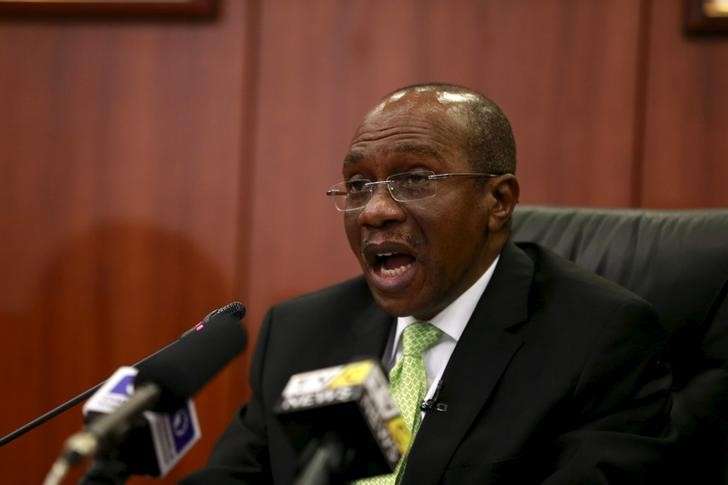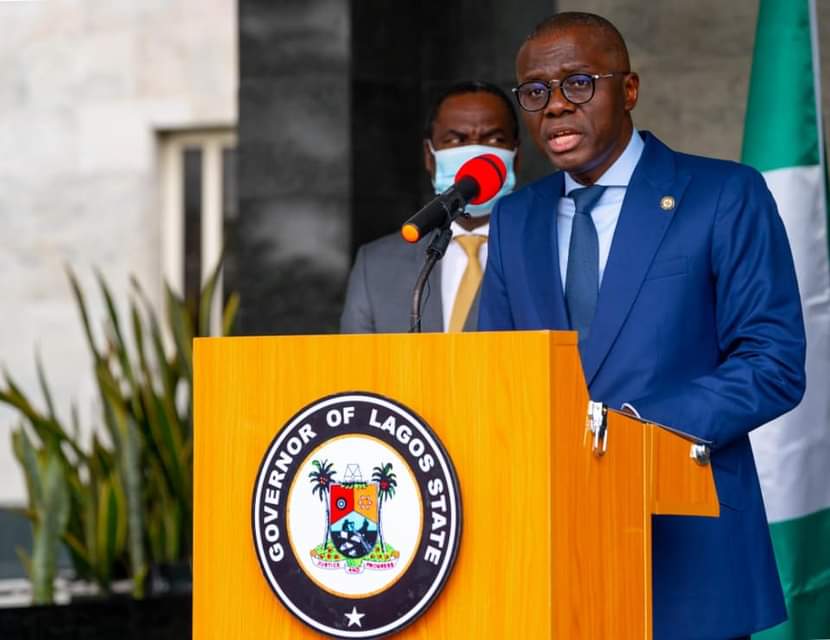Business
South Africa Central Bank Raises Interest Rate to 5.5%

PRETORIA — South Africa’s central bank on Wednesday raised its key interest rate, aiming to halt a rush out of its bonds and currency spurred on by turmoil in the world’s emerging markets.
South African Reserve Bank Governor Gill Marcus said the bank’s monetary policy committee voted to raise the so-called repo rate by 0.5 percentage point to 5.5%. It was an unexpected move, and South Africa’s first rate change since 0.5-point cut 18 months ago. Most economists expected the bank to keep rates at that level for now.
But in the past week, the ground has shifted in the global economy.
Investors have hammered South Africa and other emerging markets with wide current-account deficits and domestic political problems.
Facing similar pressures, India’s central bank raised its key rate by 0.25 percentage points on Tuesday to 8%. In an extraordinary meeting held at midnight, Turkey’s central bank jacked up its overnight lending rate to 12% from 7.75%, and its repo rate to 10% from 4.5%.
As the U.S. Federal Reserve dials back its expansive bond-buying program, traders expect Treasury yields to rise, giving investors less incentive to shoulder the increased political risks that come with higher yields on emerging-market assets.
South Africa has been among the hardest hit. The currency, the rand, fell more than 5% against the U.S. dollar this month—on top of a 24% decline in 2013—and foreign investors have pulled $1.7 billion out of South African stocks and bonds.
Ms. Marcus said a drastic drop in the value of South Africa’s rand currency has raised inflationary pressures that need to be addressed. “The process of normalization has begun, and the spillovers have implications for our own monetary policy,” she told reporters.
Other factors argued against a rate increase.
Even as the rand has tumbled, South Africa’s annual inflation rate has remained well below the bank’s 6% target ceiling, at 5.4% in December. The trade balance in Africa’s biggest economy swung to an unexpected surplus in November, from a steep deficit a month earlier.
And South Africa’s economic growth remains sluggish. The country’s gross domestic product expanded less than 2% last year, and some economists fear that an increase in borrowing costs will drag on growth even more.
Meanwhile, strikes that have plagued the critical mining and manufacturing sectors for 18 months have flared again this year in the platinum industry, a vital engine for exports.
“The economy is very weak. A rate hike that might damage growth prospects could send the wrong signal to investors,” said Johann Els, an economist at Old Mutual Investment Group in Cape Town.
Malcom Charles, a portfolio manager at Investec Asset Management in Cape Town, said it was worth risking a slight dent to economic growth to keep South Africa’s bond yields and currency at palatable levels.
“It’s tough medicine, but taking no medicine would have been a lot more dangerous,” he said.
The rand initially strengthened on news of the rate cut, then quickly fell to 11.22 to the dollar, just shy of the five-year low the currency hit earlier in the week.
The Fed is expected to trim its monthly bond purchases by $10 billion to $65 billion later Wednesday, potentially adding pressure on South Africa and its vulnerable emerging-market peers.
Ms. Marcus said that as developed economies strengthen and the Fed continues to pull back its stimulus efforts, emerging markets need to be proactive in shoring up their own economies.
“This is in our view a new leg of the same crisis that has been going on for some time. It’s now focused on emerging markets,” Ms. Marcus said. “You have a market that is very sensitive to what is going on and we are trying to create as much certainty as possible, in a thoughtful manner.”
– WALLSTREET JOURNAL
Business
Audit Report Exposes ₦514bn Financial Infractions In NNPCL

The Office of the Auditor-General of the Federation has uncovered financial irregularities amounting to ₦514 billion in the 2021 operations of the Nigerian National Petroleum Company Limited (NNPC Ltd).
The revelations were contained in a comprehensive audit report highlighting non-compliance and internal control weaknesses within Ministries, Departments, and Agencies (MDAs) during the 2021 financial year.
READ MORE: Powerful 6.8-Magnitude Earthquake Hits China, Dozens Killed
Breakdown of Infractions
The audit detailed four major financial discrepancies within NNPCL:
“Irregular Deductions: A total of ₦343.64 billion was deducted from domestic crude oil sales at source without proper documentation.
“Sinking Fund Deposits: ₦83.66 billion, categorized as miscellaneous income, was retained in a sinking fund account.
“Unauthorised Refinery Deductions: ₦82.95 billion was deducted from federation revenue purportedly for refinery rehabilitation.
“Unsubstantiated Payments: ₦3.75 billion was flagged for transactions related to petrol sales that lacked proper verification.
The Auditor-General’s report stated that these financial activities violated the 1999 Constitution and the Financial Regulations Act of 2009, underscoring significant lapses in compliance with statutory guidelines.
According to the report, NNPCL generated ₦484.73 billion from domestic crude oil sales in March and May 2021.
However, ₦343.64 billion was deducted for various purposes, including “Value Shortfall,” “Strategic Stock Holding Cost,” and “Pipeline Maintenance.”
The deductions were made unilaterally by NNPCL without adequate documentation or justification.
Additionally, the report flagged ₦50 billion of the net payable amount for May 2021 as unaccounted for, creating a significant gap in the federation’s revenue.
“Audit observed from the review of NNPC SAP payment record for March and May 2021 payments that the sum of ₦484.73bn was the gross amount generated for the sale of domestic crude for the months of March and May 2021.
“The sum of ₦343.64bn from the gross amount was unilaterally deducted from the gross domestic crude sales as NNPC Value shortfall, Strategic Stock Holding Cost, Crude Oil and Products Pipeline Losses, as well as the pipelines maintenance and management costs.
“The details of each of the cost components deducted were not provided for audit review. Hence, the reasons for the deductions could not be justified by the management.”
On the unremitted ₦50 billion from May 2021, the report noted: “In the month of May, the net payable that could have been remitted ought to have been ₦127.075bn, but only the sum of ₦77.075bn was remitted, leaving an unremitted balance of N50bn to the Federation Account, which has remained unaccounted for.”
The report attributed these anomalies to weaknesses in NNPCL’s internal control systems, warning of the risks they pose to public funds.
It read, “The above anomalies could be attributed to weaknesses in the internal control system at NNPC, now NNPC Ltd. This is a potential loss of Federation revenue, diversion of public funds, or misapplication or misappropriation of funds.”
Business
Opayemi Salutes Sanwo-Olu Over Successful Lagos Shopping Festival

The success of the maiden edition of the Lagos Shopping Festival (LSF), Africa’s first 72-hour non-stop commerce and entertainment event has been credited to the Governor of Lagos State, Babajide Sanwo-Olu.
This is the view of Managing Director/Chief Strategist of Chain Reactions Africa Ltd, Israel Jaiye Opayemi, one of the main organisers of the event.
According to Opayemi, though Chain Reactions Africa conceptualised the event, the festival could be rightly described as the Governor’s baby and owes its success to his leadership. “Firstly, the Lagos Shopping Festival could not have come to fruition if the Governor did not buy into our audacious plan when we first presented the idea to him during the Covid-19 pandemic in 2020. Secondly, it was the Governor’s exemplary leadership of the project as its Chief Marketing Officer which attracted the buy-in of key sponsors like Zenith Bank, Tolaram Group, First Bank Plc, and Guinness Nigeria Plc,” Opayemi revealed.
ALSO READ: Tinubu Okays Bulletproof SUVs, Medical Benefits, Others For Retired Army Generals
While the duo of Zenith Bank and First Bank provided their bank on wheel platforms for buyers at the Lagos Shopping Festival, they also supported the Vendors with special Point of Sale Machines with which to process payments from buyers. The banks were also seen marketing their diverse banking products to guests within the shopping arena.
For Tolaram, it was a time to support the citizens and give back to society. Guests at the Lagos Shopping Festival were freely given some of the products of the group such as PowerOil, Indomie and Kellogg’s packaged into goodie bags and given out to prospective buyers at the shopping arena. The Children’s Arena was however activated by Indomie with the children entertained by Santa Claus within a well-equipped arena manned by the Indomie Brands team and the Lagos State Safety Marshalls. The children were daily treated to free Indomie meals daily and given various gifts to go home with.
On its part, Guinness Nigeria came through as the real life of the Nigerian party by organizing product sampling activation for the teeming guests at the festival using brands such as Singleton, Johnnie Walker, Ciroc, Don Royale and Captain Morgan to deliver pleasant experiences to guests aside from Guinness and Malta Guinness.
While unveiling the identity of the festival last month, Governor Babajide Sanwo-Olu had thanked the management of Zenith Bank Plc, Tolaram Africa Group, Guinness Nigeria Plc and First Bank of Nigeria for supporting the idea of a Lagos Shopping Festival, describing it as a value addition on the state’s tourism calendar and the overall efforts to grow the State’s GDP. The Governor further said, “I must specially acknowledge your pioneering sponsorship role. It is easy for a corporate sponsor to jump on the sponsorship band wagon of an already established festival and fund it. But you are supporting the maiden edition of this Lagos Shopping Festival with us. The competition is watching you now. Do not build this brand with us and yield the space for the competition to take over. I do hope you would all commit long term to this brilliant initiative.”
On his part, Girish Sharma, CEO Guinness Nigeria Plc, expressed enthusiasm for the initiative. “Lagos is the commercial heartbeat of Nigeria and Africa’s entertainment capital, and the Lagos Shopping Festival captures its essence. We see opportunities in this initiative because it is a creative fusion of commerce and entertainment. This partnership reflects our dedication to fostering economic opportunities and support the nation’s vibrant entertainment industry.”
A first-of-its-kind, the festival was a convergence of commerce and entertainment, bringing together buyers and sellers in the MSME ecosystem, and hordes of fun-seekers who were entertained with thrilling performances by A-list entertainers, including Adekunle Gold, Wande Coal, Teni, Young Jonn, BNXN, Ayo Maff, SB Live and EmmaOMG. The list also included some of Nigeria’s most sought after DJs such as DJ Neptune, DJ YK Mule, DJ Baddo while Gbenga Adeyinka the 1st and Larry J dished out rib-cracking comedy performances.
Held from 23rd to 25th Day of December 2024, at the iconic Mobolaji Johnson Arena, Onikan Stadium, Lagos, the Lagos Shopping Festival saw thousands of fans throng the main venue and select Lagos malls during the three-day period to bag the latest bargains from local and top global brands.
Business
Naira Depreciates In Parallel Market, Gains In Official FX Market
The Nigerian Naira experienced mixed movements in the foreign exchange markets on Monday, as it depreciated to N1,665 per dollar in the parallel market, down from N1,660 per dollar recorded over the weekend.
In contrast, the official exchange rate saw the Naira appreciate to N1,534.56 per dollar, improving slightly from N1,535 per dollar last Friday, according to data released by the Central Bank of Nigeria (CBN).
RELATED NEWS: Naira Weakens Against Dollar Amid FX Shortages
This reflects a marginal gain of 44 kobo in the official Nigerian Foreign Exchange Market (NFEM).
As a result, the gap between the parallel market rate and the NFEM rate widened to N130.44 per dollar, compared to the N125 per dollar margin recorded over the weekend.















